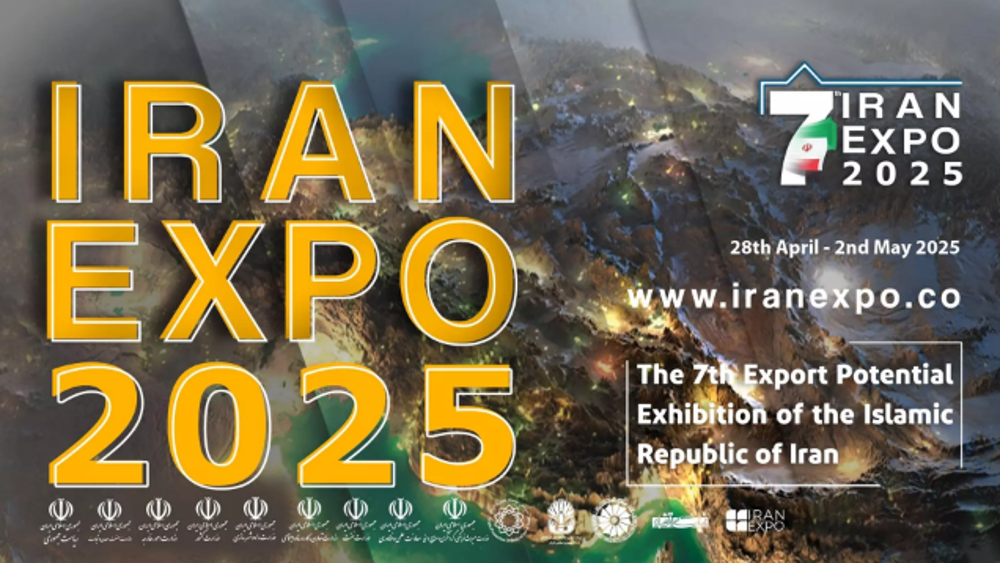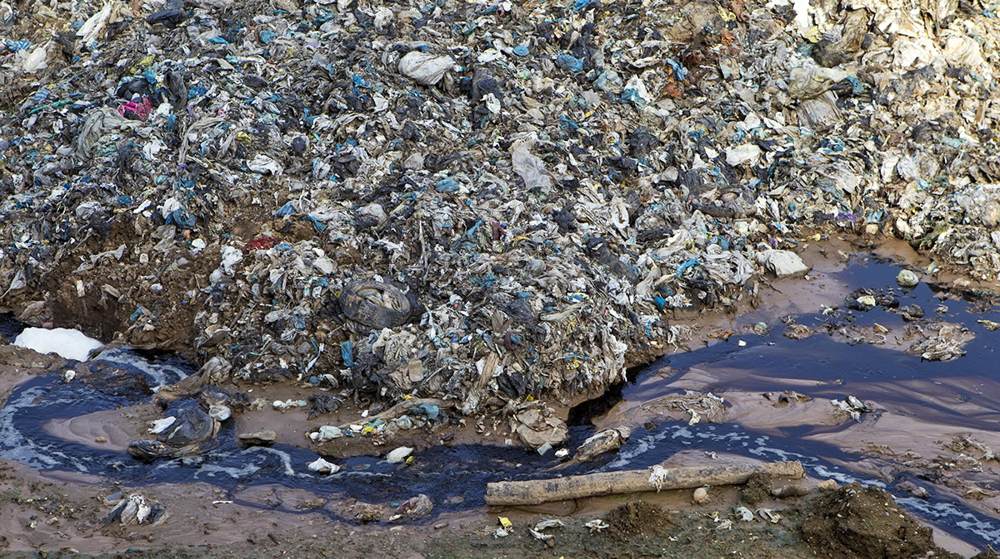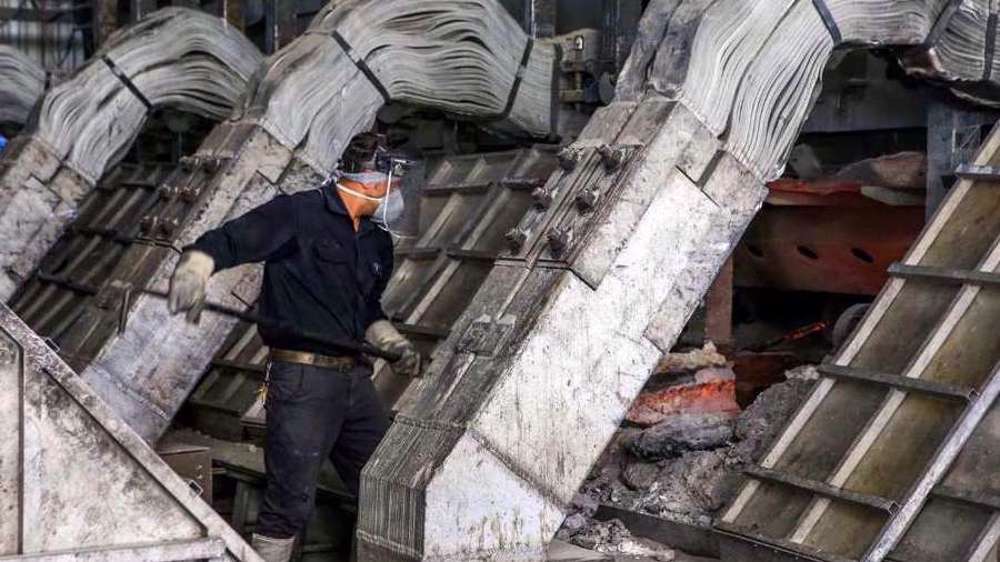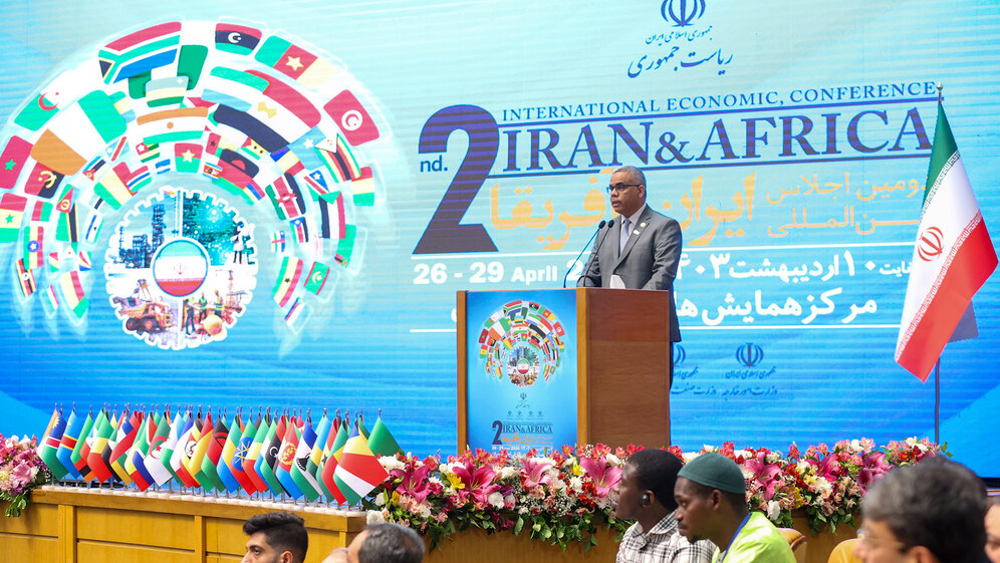Iran-Africa path toward a shared future
Iran is fresh from hosting the second trade summit with Africa in just over a year, with representatives from more than 30 African countries attending the April 26-29 event in Tehran.
The participation of more than 200 prominent businessmen from African countries showed the summit has gone beyond the mere formality of foreign ministry liaisons and exchange of pleasantries and platitudes.
It showed that the African political, scientific and business community has realized the importance of Iran's scientific and technological position in the world, symbolized by the country's successful containment of the coronavirus and its production and export of various medical and veterinary vaccines.
The African continent, with a population of over 1.3 billion people and rich resources, has been oppressed by Western countries for decades.
The current generation of Africa's intellectual and political elites is characterized by their struggle and urge to break free from the legacy of exploitation and dependence on the West.
This is manifested prominently in their support for the Palestinians, marked by South Africa's landmark genocide case against Israel at the International Court of Justice which has ruffled feathers in the capitals of Western trading partners.
So, just as the priority of African countries in strengthening economic exchanges with Iran has been cast in a cultural context, the Islamic Republic's cultural principle of fighting against imperialism and defending humanity and the rights of the oppressed resonates in political and economic sectors to bring the two sides together.
This common denominator is the key to developing strong economic relations based on the win-win principle.
The first step in this process is to recognize mutual capacities. Iran's exhibition of its capabilities alongside the summit was an important piece of the puzzle of how the two sides get their acts together.
Last year, Iran exported to 50 countries across the African continent. Bilateral trade stands at $1.2 billion, of which $1.1 billion is Iran's exports.
Given Africa's overall trade of about $1.2 trillion last year, Iran's share is insignificant compared with countries like China and India which have a strong foothold in the African markets.
Officials say Iran is targeting a 10-fold increase in trade with Africa, but one of the hurdles is the lack of knowledge that Iranian and African traders have about the capacities existing in the other side.
They also face the lack or shortage of cheap, continuous and comprehensive transportation and direct money transfer systems.
Africa today is far from what it used to be, when its name was synonymous with poverty and underdevelopment. African countries are growing by leaps and bounds and the socio-economic situation of African households is improving.
The continent hosts the largest number of cities in the world, experiencing economic growth and development at a high speed.
Through improving its economic footprint in Africa, Iran can be assured a reliable market for its goods. This would help the country diversify its foreign trade portfolio.
Iranian goods and services can have an advantage in price and quality compared to those from other countries. The country also has significant capacities in such fields as technical and engineering services, agriculture and technology, which it can offer to the African countries.
Meanwhile, the tides of global power are unmistakably shifting and the time of the hegemony of the West is inexorably running out, where both Iran and African countries are adjusting themselves to the conditions and requirements of a new world order that is non-Western.
Under the circumstances, Iran and Africa can provide considerable political, military and economic support to each other.
In particular, Iran can count on the political support and voting rights of African nations in various international organizations and institutions such as the International Atomic Energy Agency or the United Nations General Assembly.
Let's not forget that Africa hosts more than 50 countries, whose considerable political weight in international institutions and organizations can be decisive for a country like Iran.

Iran gears up for largest trade event on upbeat mood

Iran starts major project to treat wastewater with cold plasma

Iran’s aluminum output down by nearly 5% in year to March
Iran summons Argentine envoy over accusations against top officials
VIDEO | Rally against another Columbia student arrest held in New York
VIDEO | Press TV's news headlines
VIDEO | Tehran-Washington negotiations
VIDEO | Iran leads global push to define terrorism after 25 years of debate
US prepares to arm Israel with 1000s more bombs ahead of ‘vigorous expansion’ of Gaza war
Hamas: Surrender not an option; Netanyahu’s murders aimed at securing political future
VIDEO | Your children will return in coffins torn apart by Israeli missiles: Hamas to captives’ families







 This makes it easy to access the Press TV website
This makes it easy to access the Press TV website